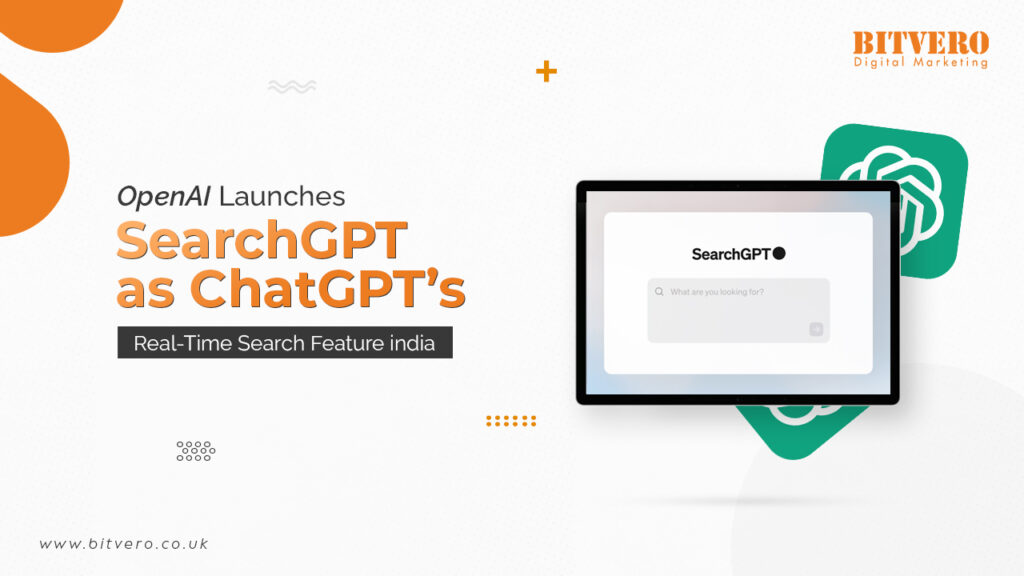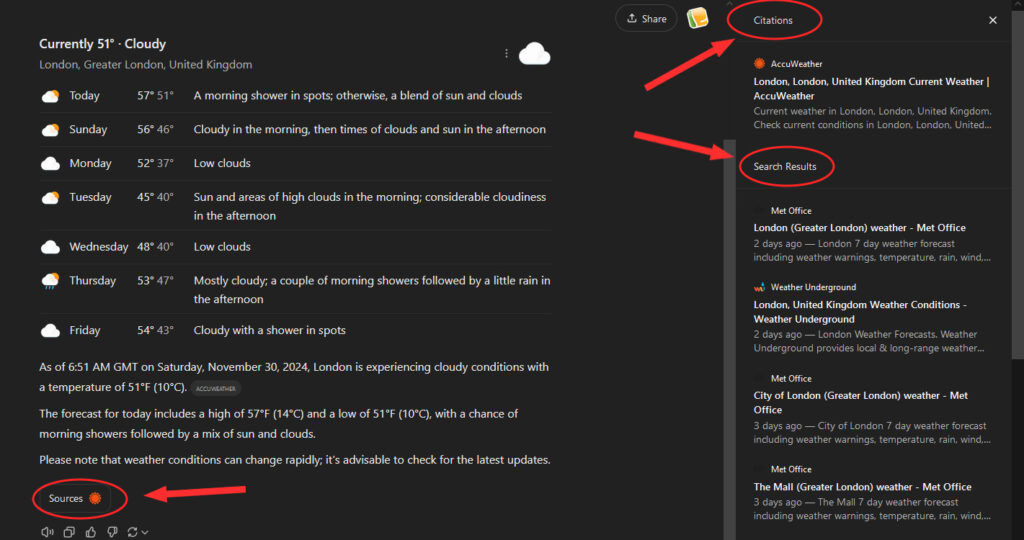OpenAI Launches SearchGPT as ChatGPT’s Real-Time Search Feature

SearhGPT OpenAI’s new search engine prototype has been successfully added to ChatGPT. So now you can get almost a search engine page experience on ChatGPT itself.
As you know, ChatGPT was previously trained on data and didn’t provide any real-time information, which is a drawback it had over traditional search engines.
So, what is it, and what changes can you see in ChatGPT after the addition of SearchGPT to it? Let us see.
Read also: Can Search GPT Disrupt Google Search?
Features of SearchGPT
So, the first thing we told you will witness in the AI chatbot is that it can now provide real-time information. If you want ChatGPT to ask about the current match score, weather updates, or live news, it fetches the data from the Internet.
It does this in a proper conversational method so you can follow up on the information, making it a search engine cum AI chatbot. Plus, ChatGPT will now also give you the reference links to the websites from which it has fetched the information – good news for SEO specialists and content marketers.
It shows the reference links through an option named Sources in a sidebar, which is categorised into two categories: direct citations and search results: you can go through both to check accuracy.
And for those citation links that SearchGPT provides, their source owner will be able to track that they appear in ChatGPT’s search results as OpenAI will show a reference tracking link as “utm_source=chatgpt.com” in publishers’ analytics.
Read also: Optimising For Google’s New Landscape and The Future of Search
Now what will be the Google vs ChatGPT scenario?
As search makes it possible to provide fresh and real-time information in one place at the same time, it seems that users will find it more convenient to do research stuff, unlike Google, where they had to go from different web pages to find the various relevant aspects of a topic.
For instance, your every what, why, how, where and other closely related topics you would have the answers in a thread of follow-up conversation.
So, we can say that in terms of UX, ChatGPT will surely surpass Google or at least affect Google’s monopoly. Plus, the ChatGPT interface will show paid ads that appear in Google search results, so this uncluttered search experience will give ChatGPT an edge.
However, Chatpgt currently doesn’t work with local queries as it covers mostly informational queries, so we can say that Google has an advantage over it in such cases. Google Local SEO, or transitional and navigational queries, is still making users opt for Google as their platform to search.
Also read: The Impact of Generative AI on SEO Strategies
However, it does mean that in the future, Chatgpt won’t be able to integrate such features too in the chatbot as it is constantly enhancing. So, for now, we can see who wins in this—— Google or OpenAi, but the race goes on.
Plus, apart from OpenAI’s SearchGPT Google’s SGE is also making enormous space in SRPS with its AI snapshots. Google will continue to engage in AI searches. Besides, Microsoft’s Copilot is on the same track to help users in a conversational way. So, the final analysis says that no matter if traditional search engines continue in their current form, with AI, they will surely enhance to the best in future.
Thank you for reading! We hope you found the information helpful. For more such SEO and AI articles you can subscribe to our blog. Also, if you looking for an SEO consultant in London get in touch with us.



